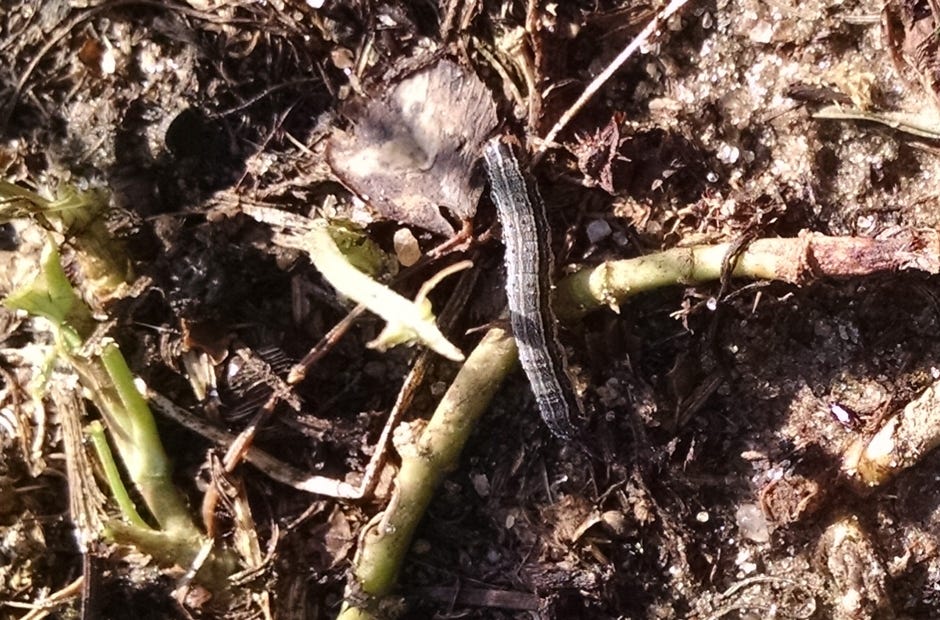
Fall armyworms were found this week in wildlife food plots containing clovers.
This pest can completely defoliate a field in an about a week. They have a wide range of host plants such as grasses, clovers, cotton, soybeans, corn, peanuts, and tomatoes.
Fall armyworms overwinter in southern Florida and southern Texas. The moths or adult stage are strong fliers that disperse long distances across the Southeastern US over the summer.
Their life cycle includes egg, larva, pupa, and adult. The length of the life cycle depends on the time of year, from 30 days in the summer to 90 days in the winter.
Each female moth lays up to 2,000 eggs in her lifetime. Each egg mass is laid on foliage and contain 100-200 eggs. Eggs only take two to three days to hatch during the summer.
The larval (worm) stage is the most damaging to crops. Larvae consume a lot of foliage and grow quickly, especially in the summer months.
The face of a mature larva will have a light colored inverted “Y”. This stage usually lasts 14 days in the summer. The larvae then spin a loose cocoon and pupate in the soil. In about eight to nine summer days, an adult moth will emerge. The adult moth then lives about seven to 21 days, with the females laying eggs on favored food sources.
Scouting is in order for row crops, wildlife food plots, and hay fields.
For information on controlling fall armyworms, call the Okaloosa County Extension office at 689-5850.
Jennifer Bearden is an agent at the University of Florida's Institute of Food and Agricultural Sciences Extension office in Crestview.
This article originally appeared on Crestview News Bulletin: BEARDEN: Check fields for armyworm infestations
